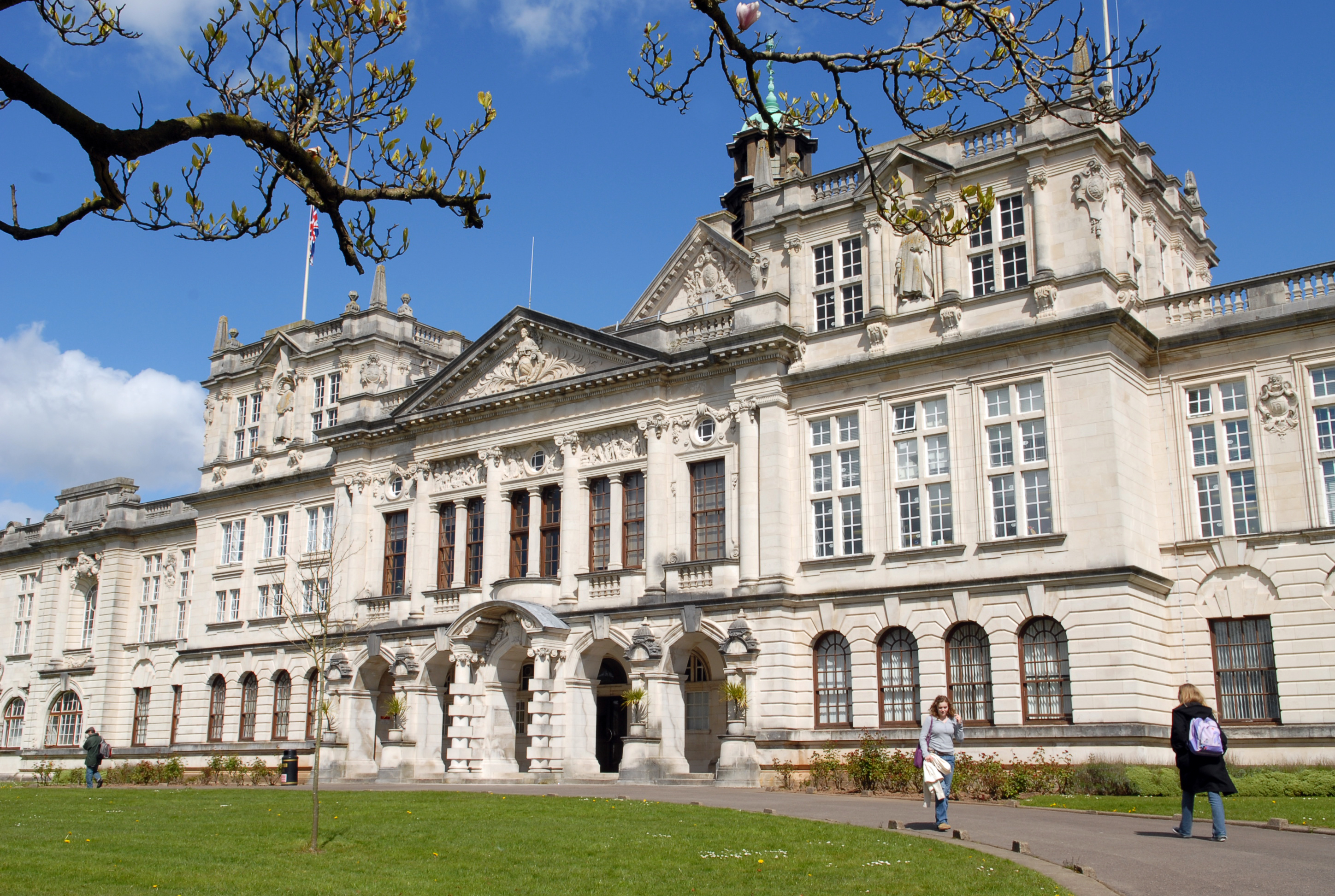The 10 most beautiful universities in the UK
They say that beauty is in the eye of the beholder, but you’d be hard-pressed to find somebody who can’t see the beauty in these 10 UK universities
- Best universities in
Share
������Ƶ
When you think about classic, beautiful university buildings, the UK will usually be one of the first countries you think of. ������Ƶ to some of the oldest universities in the world, many of its universities have been used as filming locations for period dramas and epic films.��
Here at Times Higher Education Student we have thought long and hard about which universities are deemed the most beautiful in the UK, with rolling green spaces, and Gothic and modern buildings.��
1. Royal Holloway
Located in Egham, a Surrey town between Windsor and Heathrow,��Royal Holloway, University of London is often hailed as one of the most beautiful universities in the world. The main Founder’s Building (pictured above) was originally home to a women-only college, but it now houses a picture gallery displaying Thomas Holloway’s collection of Victorian paintings, a chapel, kitchen and dining hall, lecture theatre, arts library and student accommodation. Its imposing pillars, towers and turrets were modelled on those at the Chateau de Chambord in the Loire Valley. The building is a popular filming location and often appears in film or TV as a public school or grandiose residence, including in Downton Abbey and Avengers: Age of Ultron. The campus comprises 135 acres of parkland, which is home to 200 species of shrubs, 150 types of tree and many different flowering ������Գٲ�.��
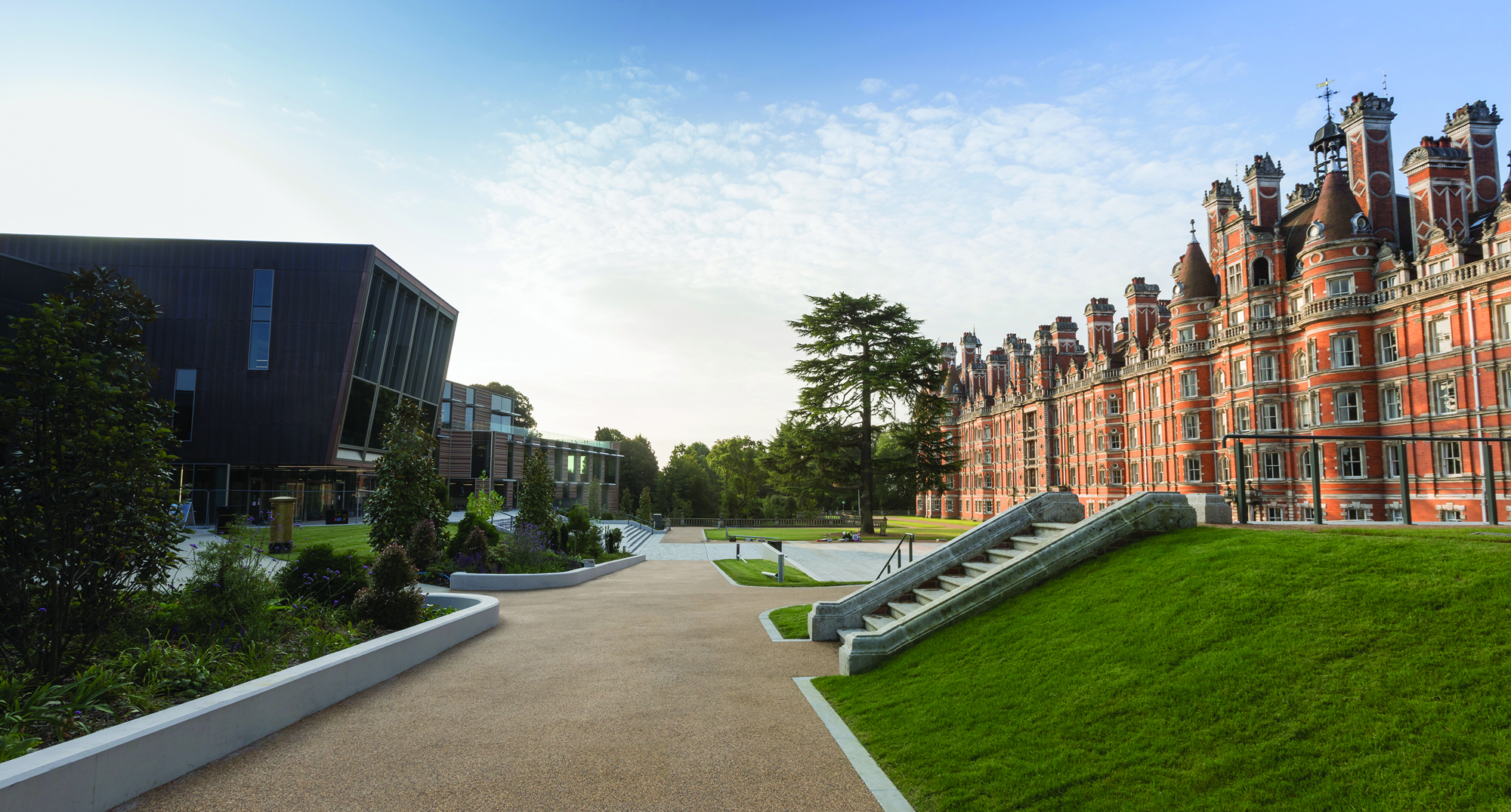
Founded in 1583, the University of Edinburgh has been topping the list of the most beautiful universities since time began. Quite literally – the modern Gregorian calendar was introduced in the same year. It is also one of the best universities in Scotland. The university’s Georgian Old College is one of the most iconic buildings on the city-based campus; work began on it in 1789 and it was finally finished in 1887, with the addition of its eye-catching dome. It is home to the university’s School of Law and a contemporary art gallery, the Talbot Rice Gallery – as well as some of the best views in the city. If the architecture isn’t enough to wow students, the chance of an exhilarating study break certainly will – Arthur’s Seat, the 823 foot-high dormant volcano overlooking the city is a popular spot for students and other residents to lap up the beauty of the city. And blast away the cobwebs of a hangover, of course.
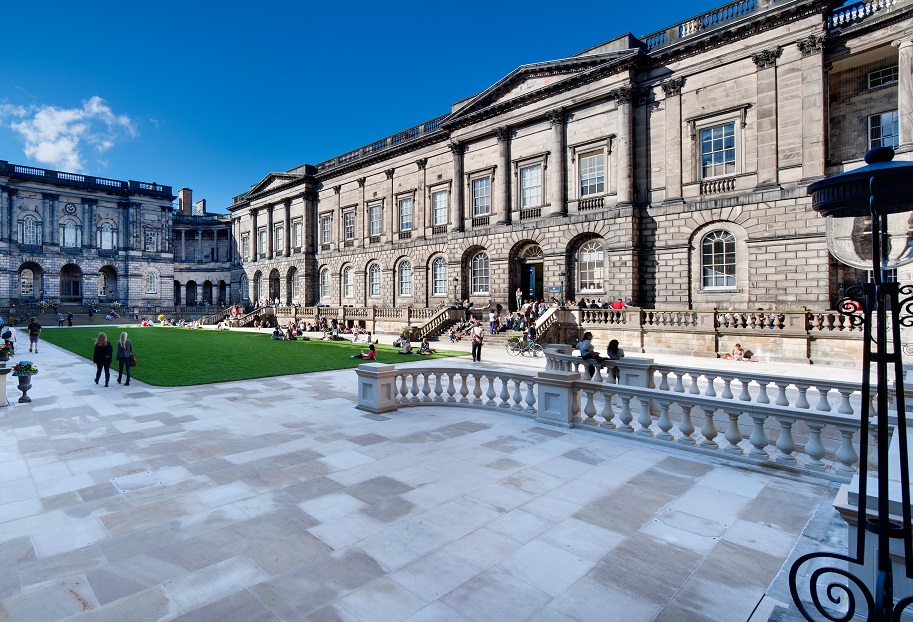
Although the date of its founding is not known, there is evidence to suggest that teaching began at the University of Oxford in about 1096 – making it the English-speaking world’s oldest university. And arguably, one of the UK’s most beautiful. There’s no main campus; instead its 38 colleges, buildings and facilities are scattered across the city. Formal hall dining, balls and academic dress are still cornerstones of student life and the images gleaned from popular culture are mostly true: expect to be in awe of the dreaming spires and college scarf-wearing students on bicycles. That being said, everything is accessible on foot – just stay off the immaculate lawns in college courtyards. One of the city’s most iconic landmarks is the Radcliffe Camera, a neoclassical library that forms part of the Bodleian Library complex, also known as “The Bod”, which contains a copy of every book ever printed in the UK and Ireland. The Bridge of Sighs deserves a mention too; built in 1914, it joins two parts of Hertford College and although it is not modelled on the Venetian Bridge of Sighs, the similarity is uncanny. Christ Church Meadow and the 130-acre Harcourt Arboretum are perfect for summer picnics and tranquil study breaks.

The second-oldest university in the English-speaking world after Oxford, the University of Cambridge was started by a group of scholars who left the University of Oxford after a clash with the townspeople. The university comprises eight museums, a botanical garden and 31 colleges, spanning from the 13th��to the 20th��century, each with its own fascinating history, unique architecture and stunning grounds. It is known for its magnificent structures; which range from traditional Tudor to medieval to contemporary. The city is known worldwide for its beauty, with highlights including the King’s College Chapel (considered one of the finest examples of late Perpendicular Gothic English architecture, including spectacular 16th-century stained glass windows) and the Bridge of Sighs, a covered bridge that was said to be one of Queen Victoria’s favourites. Many colleges overlook the River Cam, which is often filled with students and tourists taking a picturesque punt – wearing straw boater hats, naturally.��
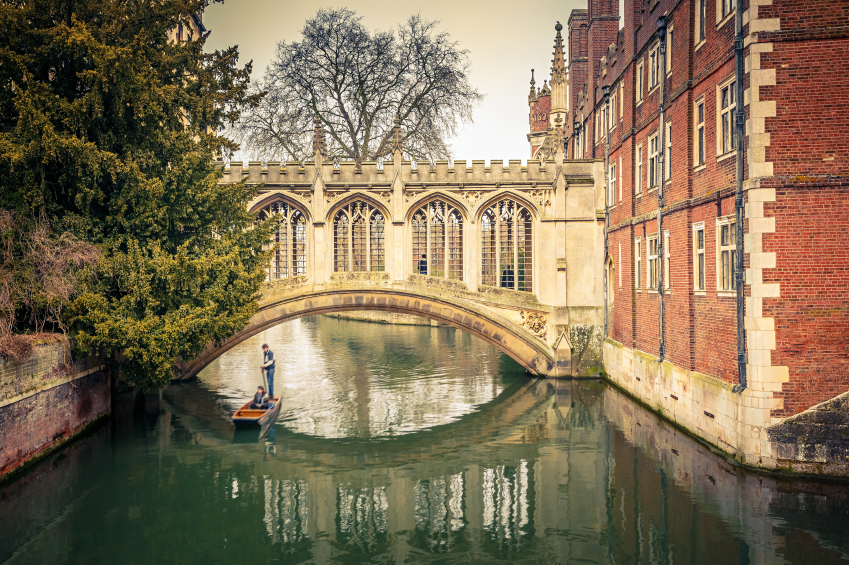
Not only does Keele University possess a picturesque rural campus, but it is also home to Keele Hall, a 19th-century turreted, red-brick, stately home, which once housed the Sneyd family, a family of successful drapers and merchants. Located three miles from Newcastle-under-Lyme in Staffordshire, Keele’s campus is 625 acres wide (almost twice the size of London’s Hyde Park) and comprises parkland, lakes, a stream, hidden walkways and an arboretum. The perennially beautiful arboretum is home to flowering magnolias, redwoods, giant maples, pagoda trees, witch hazel and the largest collection of flowering cherry trees in the UK. The rustic splendour and enormity of the campus means that many staff and students are lucky enough to live in the grounds, which are almost self-sufficient – there are shops, healthcare facilities, accommodation and sports facilities on campus.
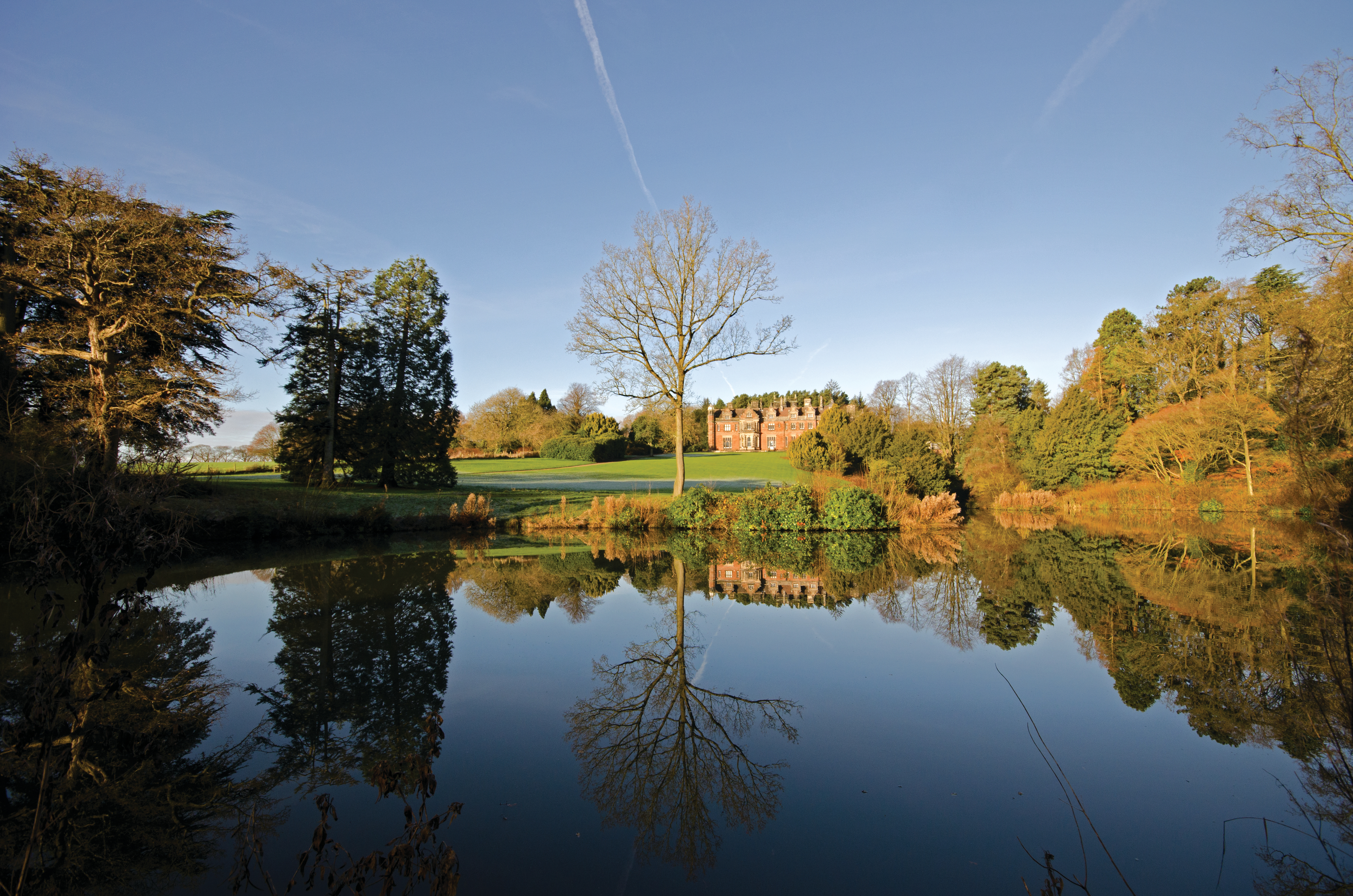
The University of Glasgow is the fourth-oldest academic institution in the English-speaking world. One of Scotland’s oldest universities, it was the centre of the Scottish Enlightenment during the 18th��century. The university is made up of several sprawling campuses and its magnificent architecture is a combination of Gothic Revival and Brutalism. With its pointed slate turrets, antique windows and greenery, the university is an Instagrammer’s dream. The main Gilbert Scott building��is the second largest example of Gothic revival architecture in Britain, after the Palace of Westminster.��The fluted columns of its cloisters and dramatic archways form the entrance to the oldest museum in Scotland, the Hunterian Museum and Art Gallery.��Glasgow means “dear green place” in Gaelic and its 90 parks and gardens do not belie its name.��
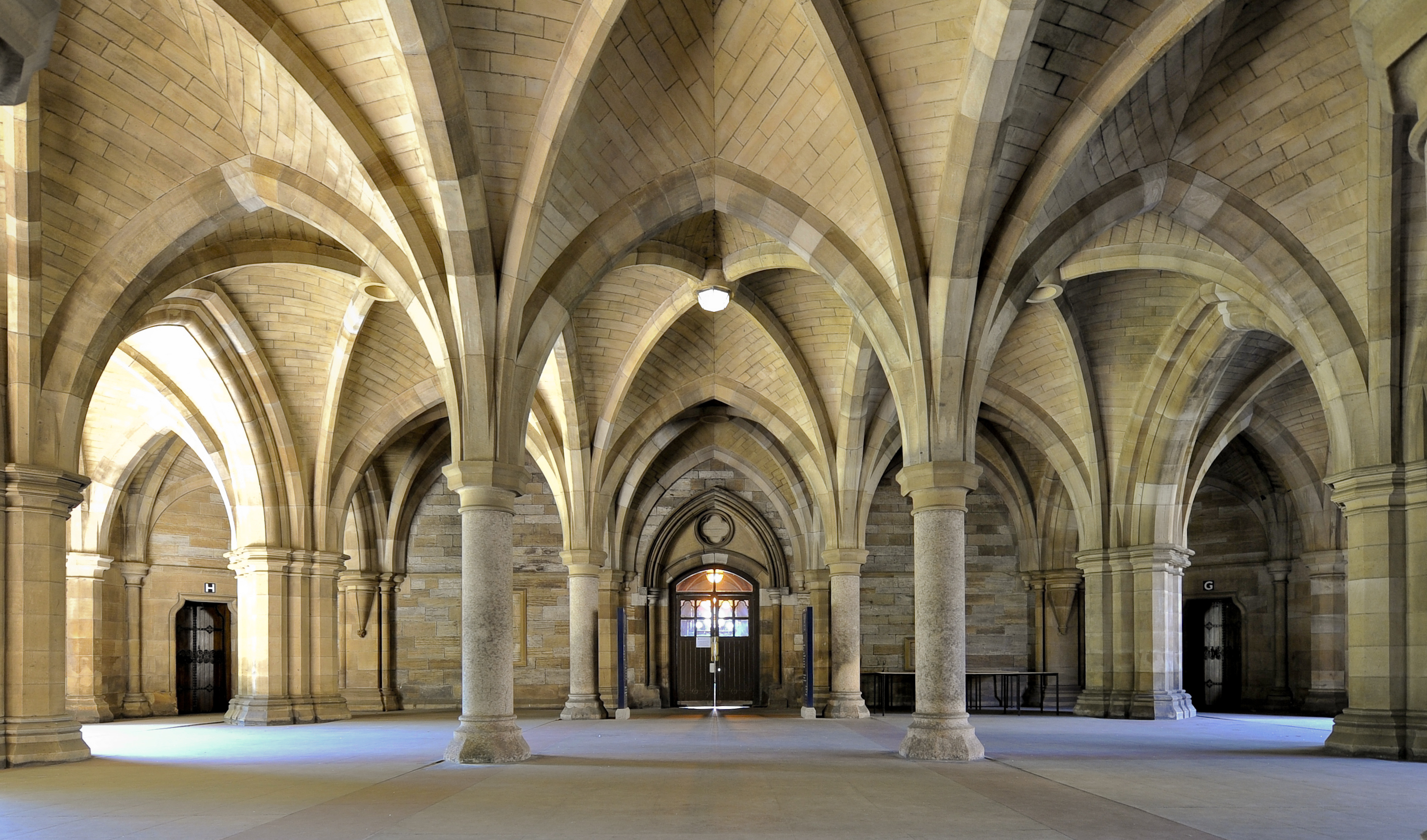
7. Queen’s��University Belfast
Expect a plethora of glossy marble floors, period statues and ornate turrets at Queen’s��University Belfast, the UK’s ninth oldest university. The campus includes 300 buildings, each beautiful in its own way. The Lanyon Building, opened in 1849, is the nerve centre – and highlight of Queen’s. The architect, Sir Charles Lanyon, was responsible for designing many other Belfast landmarks including Belfast Castle, Crumlin Road Gaol and the Customs House. The historic, red-brick campus is in South Belfast, 15 minutes’ walk from the vibrant city centre, which was named the happiest place to live in the UK by the Office of National Statistics in 2016.
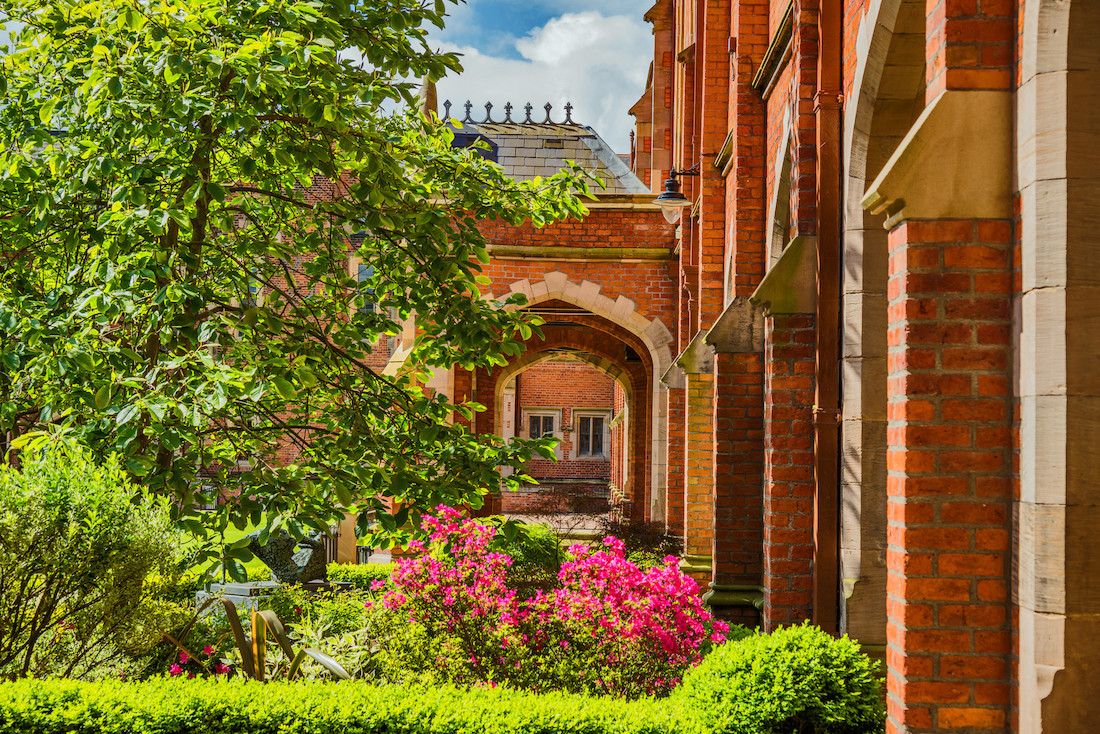
In stark contrast to its backdrop of Canary Wharf skyscrapers, the main campus of the University of Greenwich is quite a grand university setting. Conjuring up “images of history and science in equal measure”, the university boasts three historic campuses, the oldest being the Old Royal Naval College, which became part of the university in the 1990s. As one of the UK’s oldest universities, it is also a Unesco World Heritage site and its baroque structures, designed by Sir Christopher Wren (who also designed St. Paul’s Cathedral), sit right next to the River Thames. This campus is a popular filming location and has played host to scenes in films such as Four Weddings and a Funeral, Gulliver’s Travels, The Queen, Les Misérables and The King’s Speech. The university also has campuses at Avery Hill in southeast London, set in acres of parkland, and at an elegant Edwardian red-brick site in Chatham Maritime, Kent.
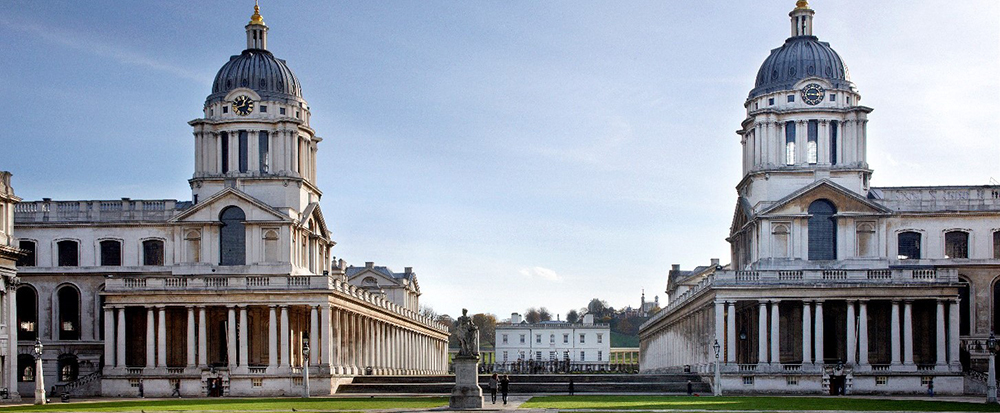
Founded in 1876, the University of Bristol is a striking mix of contemporary and heritage architecture, with plenty of lush parks, gardens and open spaces for relaxing and strolling. The large university campus is sprawled across Georgian squares and more contemporary blocks in Clifton, with landmark buildings designed by Charles Dyer, George Oatley, Ralph Brentall and Charles Hansom. The university is well known for its Gothic architecture, particularly the ceiling of the Bristol Law Library. The city is known for its creative atmosphere (Bristol-born Banksy’s murals can be spotted all over the city) and stunning countryside walks, with Brunel’s famous suspension bridge as a backdrop.
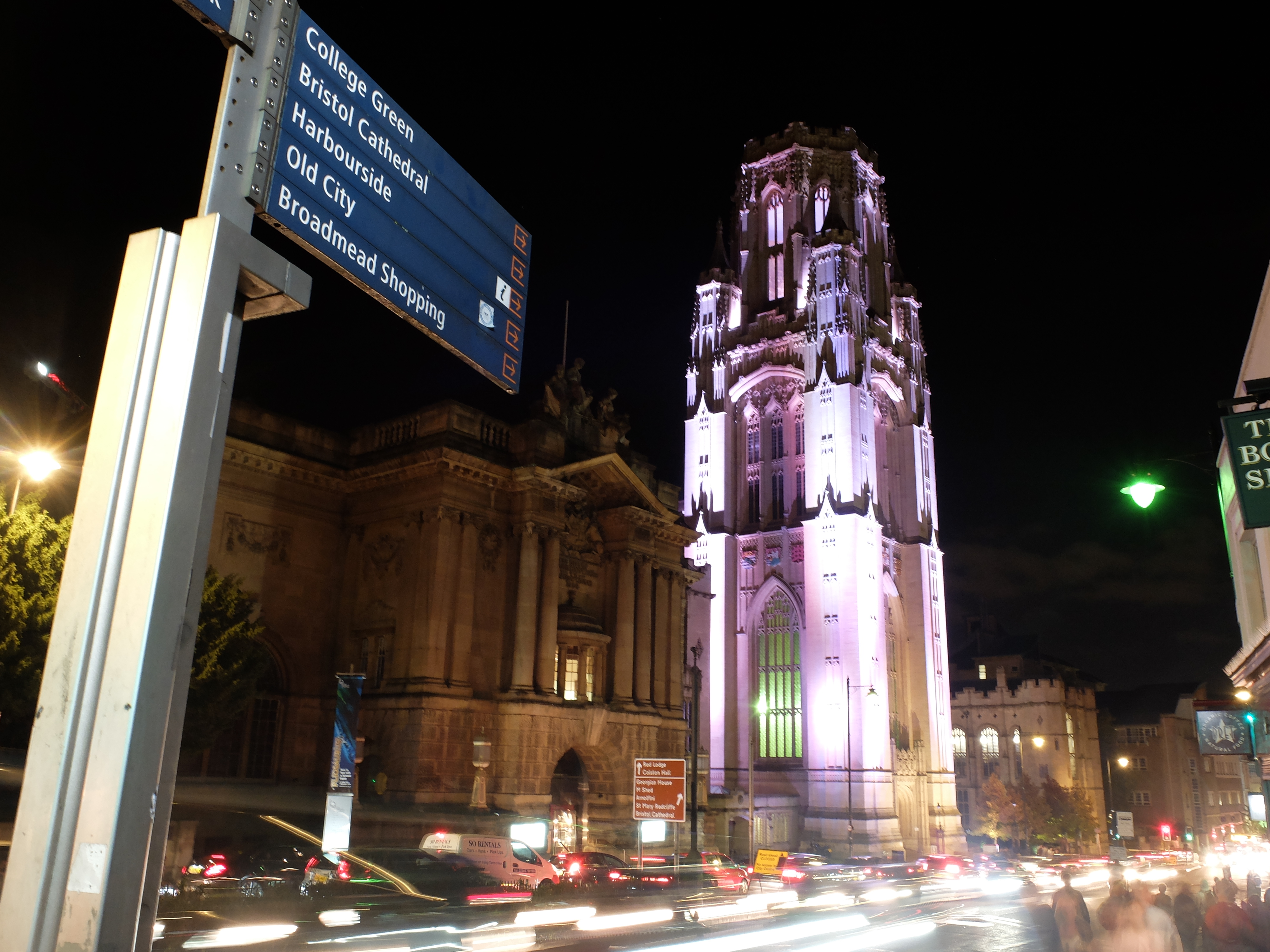
Cardiff University is a relatively young university in comparison with some of the others included in this list, but it had to be included because of some of the striking buildings on its campus. Many of the academic facilities overlook Cathays Park in central Cardiff, including the Main Building, the Bute Building and the Glamorgan Building. All three of these buildings are listed and were designed by different architects in their own distinct styles. The two groups of statues in front of the Glamorgan Building represent navigation and coal mining as reminders of the source of Glamorgan’s wealth. The Bute Building was designed in a neoclassical style complete with six Roman columns flanking the entrance to the building.��
